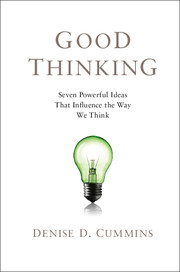Eight - Problem Solving
Turning What You Don’t Want into What You Want
Published online by Cambridge University Press: 05 June 2012
Summary
Houston, we have a problem.” It’s 1970, and NASA has just launched another manned space expedition, Apollo 13. It is the seventh manned expedition and the third scheduled to land on the moon. People have become fairly jaded about these expeditions, and so little air time is devoted to televising the mission – until an oxygen tank explodes, crippling the spacecraft and stranding its three astronauts 205,000 miles above the earth. While the astronauts search for ways to survive in the limited time they have left, NASA’s heroic ground crew searches for ways to bring the craft safely back home using nothing more than the items available to the men on board. As we all know from history (and a really great Ron Howard movie starring Tom Hanks), they find a solution, and all ends well.
Although more dramatic than the usual problems we encounter in everyday life, the Apollo 13 story contains all of the elements that comprise all problem solving, from solutions to the little annoying problems (finding your lost keys) to potentially life-changing ones (finding a cure for a deadly disease). The key insight derived from Apollo 13 – and from a century of research on problem solving – is this: Problem solving is search. When you rummage around your house looking for your keys, you’re involved in search. When investigators sift through a crime scene, they are searching for evidence to solve a crime. When a prosecutor questions a witness, she is searching the witness’s memory for information relevant to solving a crime. When a medical researcher conducts an experiment on cancer cells, she is searching for mechanisms underlying the disease. When you reason through a problem, you are searching your knowledge base to find facts and inferences that lead to a solution. And when you wake up in the night with the solution to a problem that was bugging you all day, your brain was engaged in an implicit search process that led to the solution.
- Type
- Chapter
- Information
- Good ThinkingSeven Powerful Ideas That Influence the Way We Think, pp. 138 - 167Publisher: Cambridge University PressPrint publication year: 2012



